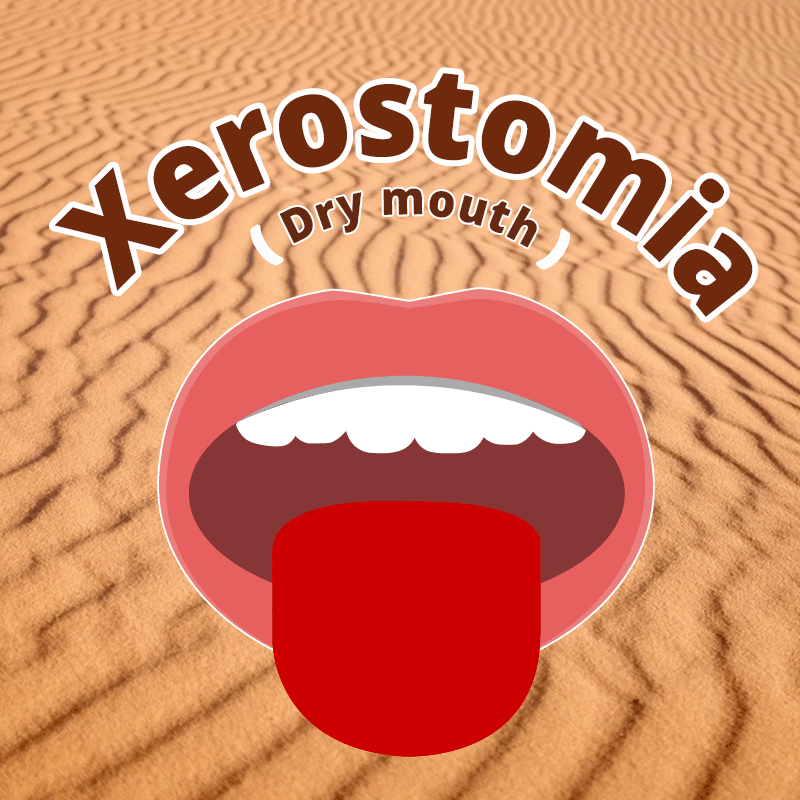Acupuncture Alleviates Xerostomia Conditions In Cancer Patients.
Source: Thailand Medical News Dec 07, 2019 6 years, 1 month, 3 weeks, 3 days, 2 hours, 50 minutes ago
Researchers from the University of Texas MD Anderson Cancer Center have demonstrated in a new study that after receiving
acupuncture treatment three days a week during the course of radiation treatment, head and neck
cancer patients experienced less dry mouth or
xerostomia conditions.

The clinical trial results, published in
JAMA Network Open, is the first randomized, placebo-controlled, Phase III trial to evaluate the use of
acupuncture during radiation therapy to reduce the incidence and severity of radiation-induced
xerostomia, or dry mouth.
Acupuncture treatment has very few side effects and is relatively low cost compared to standard treatments such as medication and saliva substitutes. These results support a 2011 study that found symptoms improved up to six months after radiation treatment with concurrent
acupuncture sessions.
"
Xerostomia or Dry mouth is a serious concern for head and neck
cancer patients undergoing radiation therapy. The condition can affect up to 80% of patients by the end of radiation treatment," said the study's principal investigator, Dr Lorenzo Cohen, Ph.D., professor of Palliative, Rehabilitation, and Integrative Medicine and director of the Integrative Medicine Program during a phone interview with
Thailand Medical News. "The symptoms severely impact quality of life and oral health, and current treatments have limited benefits."
Acupuncture had significantly lower
xerostomia scores than standard care control (SCC) and marginally lower than the sham
acupuncture (SA), with no differences between SA and SCC. One year after the end of radiation therapy, the incidence of clinically significant
xerostomia was 35% in the TA(true
acupuncture) group, 48% in the SA group and 55% in the SCC group.
The recent study included 339 head and neck
cancer patients undergoing radiation treatment at MD Anderson and Fudan University
Cancer Center in Shanghai between December 16, 2011 and July 7, 2015. The patients were divided into three groups. One group received true
acupuncture, another group received sham
acupuncture and the third group, the SCC group, received radiation and oral health education but no acupuncture. None had received
acupuncture prior to participating in the study.
Cancer patients assigned to either TA or SA received acupuncture three days a week on the same day as their radiation treatment, which lasted six to seven weeks. The sham procedure involved a real needle at a point not indicated for
xerostomia, real needles at sham points and placebo needles at sham points.
Study results were based on data derived from a self-report questionnaire. Patients completed the
Xerostomia Questionnaire (XQ), an eight-item survey assessing symptoms of
the condition. XQ scores under 30 corresponded to mild or no symptoms of
xerostomia. The data was collected at baseline, at the end of radiotherapy, and three, six and 12 months after radiation treatment.
Acupuncture resulted in significantly fewer and less severe dry mouth symptoms one year after treatment. The
xerostomia score in the TA group was 26.6 vs 31.3 in the SA group and 34.8 in the SCC group.
The AES or
Acupuncture Expectancy Scale was used to measure the relationship between expectations related to
acupuncture and clinical response. Patients completed the AES at baseline, after four
acupuncture sessions and at the end of
acupuncture treatment. There were no group differences or differences between sites.
Dr Cohen added, "The evidence is to a point where patients should incorporate
acupuncture alongside radiation treatment as a way to prevent the severity of dry mouth symptoms. I think with this study we can add acupuncture to the list for the prevention and treatment of
xerostomia, and the guidelines for the use of acupuncture in the oncology setting should be revised to include this important chronic condition."
A further analysis showed a significant difference between sites in response to placebo. The Chinese patients had little to no placebo response to sham
acupuncture whereas the MD Anderson patients had a large placebo response, showing both forms of
acupuncture worked. More studies are needed to understand these site differences, but it has been suggested that it could be due to the environment in which the
acupuncture is delivered, cultural influences or the relationship between patient and practitioner.
The team plans studies that will focus on ensuring
acupuncture delivery is well controlled and will evaluate inconsistencies in response to sham
acupuncture. Additional studies are needed to confirm the trial results and better understand the neurological mechanisms of
acupuncture.
Reference: Effect of True and Sham Acupuncture on Radiation-Induced Xerostomia Among Patients With Head and Neck CancerA Randomized Clinical Trial M. Kay Garcia, DrPH1; Zhiqiang Meng, MD2; David I. Rosenthal, MD3; etalYehua Shen, MD2; Mark Chambers, DMD4; Peiying Yang, PhD1; Qi Wei, MS1; Chaosu Hu, MD5; Caijun Wu, BS2; Wenying Bei, BS2; Sarah Prinsloo, PhD1; Joseph Chiang, MD6; Gabriel Lopez, MD1; Lorenzo Cohen, PhD1
JAMA Netw Open. 2019;2(12):e1916910. doi:10.1001/jamanetworkopen.2019.16910
